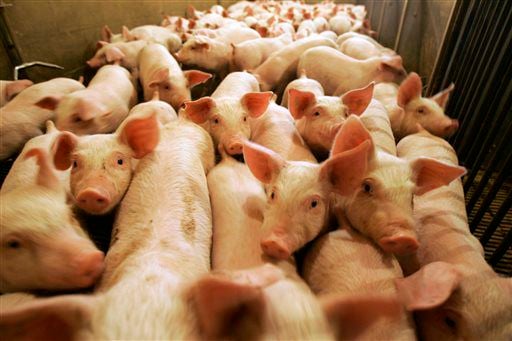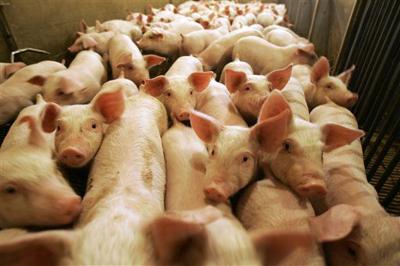JEFFERSON CITY ŌĆö The state Supreme Court dealt a blow Tuesday to a long-running effort aimed at blocking the operation of a massive pig farm in northwest Missouri.
In a unanimous decision, the court said the Republican-led Legislature did not violate the state constitution when it changed who can be appointed to the Clean Water Commission.
The seven-member commission has the power to sign off on permits allowing companies to build the controversial farms, which are blamed for strong odors and have the potential to foul streams and rivers with animal waste.
At issue is a 6,000-pig feeding operation planned near the northern Missouri town of Trenton. A coalition of nearby residents known as Hickory Neighbors has fought construction since 2015, arguing the facility could pollute the regionŌĆÖs water and air.
Minnesota-based it will annually apply about 4.4 million gallons of manure on 784 acres of nearby fields.
People are also reading…
Before 2016, the clean water panel had four members representing the general public, one with experience with wastewater, and no more than two representing agriculture, mining and industry.
Under a 2016 change in the law the requirements were flipped, giving the governor the ability to stack the commission with farm-friendly members.
Both former Gov. Eric Greitens and current Gov. Mike Parson have appointed people to the board who have strong ties to the agriculture industry. For example, Parson, a cattle farmer, appointed Allen Rowland, of Dexter, to a vacant seat on the commission soon after he took office.
Rowland is a retired farmer, who has served on the Missouri Soybean Merchandising Council and has been involved with the Missouri Farm Bureau, Stoddard County Farm Bureau and Missouri Corn Growers Association.
Supporters of the membership change said it was needed because the general public doesnŌĆÖt have the expertise to deal with complex clean water regulations.
In arguments before the court last year, Hickory Neighbors attorney Stephen Jeffery said the legislation was flawed because the provisions affecting the commission were tacked on to a different bill that was limited to other subjects as lawmakers scrambled to get the change on the books.
The constitution says no bill can be amended to change its original purpose, and no bill can be about more than one subject, which must be in the title of the bill.
The court disagreed.
In addition to legal arguments over the original legislation, opponents also raised questions over whether structures built to hold manure are situated within the 100-year flood plain and whether the company conducted a study to determine the possibility that a spill could occur.
Supreme Court Judge Patricia Breckenridge, writing for the court, said an independent inspector found the lowest proposed manure pit would be 3.5 feet above the base flood elevation.
ŌĆ£He also concluded the lowest proposed opening to a building would be 13.5 feet above the base flood elevation,ŌĆØ Breckenridge said.
The case is the latest in a series of legal challenges affecting farms known as concentrated animal feeding operations, or CAFOs.
In July, the Supreme Court rejected a separate case brought by an environmental group affecting the Clean Water Commission, ruling that the organization did not have the legal standing to pursue the case.
Tim Gibbons, spokesman for the Missouri Rural Crisis Center, said the decision was disappointing because the large-scale factory-style pork operations have a negative impact on family farmers.
ŌĆ£They have not shown to be good neighbors in the past and there is nothing indicating they will be good neighbors in the future,ŌĆØ Gibbons said. ŌĆ£These arenŌĆÖt your family hog operations. They just care about making money.ŌĆØ












